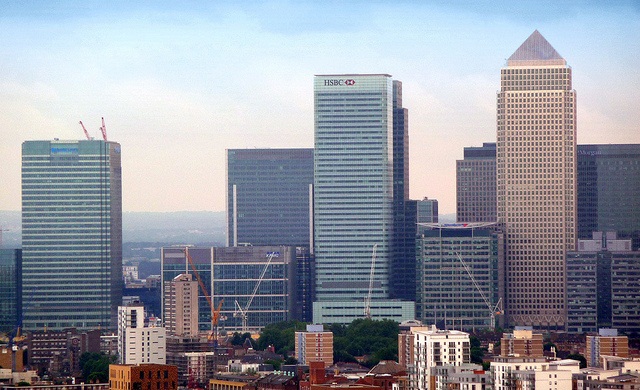Britain’s banks have provided a bevy of news for the first Monday in August. And – surprise!- not all of it is bad. Not that long ago, any story about UK banks could have been written in one word: “Disaster.” Actually, it’s been so bad for so long that “bank” and “disaster” in the same sentence is no longer news. Here’s a mini-breakdown of what’s going on in the topsy-turvy world of British banking today.

Lloyds (LSE:LLOY)
Lloyds is the bank that I love to hate, but that’s personal. CEO António Horta-Osório’s hobby must be fishing. Or it could just be that he has some exceptional marketing savvy. He definitely understands that you can start a feeding frenzy when you throw bait into a pool of sharks. He threw the bait in the water this morning by announcing that he “aims to start paying out up to 70% of the banks earnings in dividends within three years.” Lloyds lead the market to day, coming in second both in volume (133.9 million shares) and trades (13,779), the latter number being three times the next number of trades.
His announcement comes on the heels of a breakthrough second quarter and news last week that he hopes to return Lloyds to the private sector in the near future. Speculation is that “near future” could be as soon as September. I have to bow to his marketing prowess. About the only thing that he could have said that would have attracted more investor attention was that investing in Lloyds would increase your libido and replace Viagra. Lloyds shares were up another 3.85% to 76.57, an increase of 2.84 pence, from Friday’s close, which itself was close to a two-year high. Lloyds has not paid a dividend of any amount since 2008.
Barclays (LSE:BARC)
Oh, dear. Where to begin. One sometimes has to wonder if the bank’s EPIC symbol is really an acronym for Bloody Awfully Run Company. News from Barclays over the past several days is not quite as bright as that from Lloyds.
First, there is the announcement that the FCA may impose additional penalties on the bank for some miscreant adventures that it undertook with Qatari investors in 2009 that were not reported according to regulatory rules. The transactions were reportedly in the neighborhood of £11 billion and were used to avoid a taxpayer bailout. The FCA claims that the move misled investors, which it probably did, although the bank is claiming that it was no big deal. Could that statement mean that they be misleading investors yet again? I wonder.
Then these is the problem that the Prudential Regulation Authority said last week that Barclays must raise an additional £12.8 billion in capital reserves in order to comply with stricter European standards that were put into place following the world-wide financial crisis. The bank is attempting to raise £5.8 billion to help meet that goal.
Now Barclays is embroiled in a controversy over its announcement that it will no longer engage in transactions with entities that transfer monies to banks in Somalia. Their concern, which is entirely legitimate, is that some of those transfers me be being funneled to terrorists. However, the backlash from many of the people who make those transfers is gaining ground as they raise concerns, also legitimate, that stopping the approximately £850 million annual sent by relatives to their families in Somalia would throw the country into even more chaos.
Royal Bank of Scotland (LSE:RBS)
Stephen Hester’s proposal to split RBS into two separate banks – referred to as a good bank and a bad bank – is meeting with serious shareholder disapproval. His replacement, Ross McEwan, will step into the mire on October 1st. Frankly, I do not envy him. The fact that the bank seems to be unable to unravel and resolve its financial mess cannot possibly inspire investor confidence, especially not anywhere close to the magnitude of what Horta-Osório is doing at Lloyds.
The good bank-bad bank scheme was an alternative plan to meet government imposed deadlines for RBS to dispose of 315 poorly performing branches, a move that has not been going all that well. However, there are growing indications that bidders are, at long last, knocking on RBS’ doors, including, as we reported earlier, a consortium led by the Church of England, another group led by Alan Hughes, former CEO of First Direct, and yet another led by Andrew Higginson, former Tesco finance director.
That’s pretty much the big picture for now. Stay with ADVFN to watch details unfold.


 Hot Features
Hot Features













